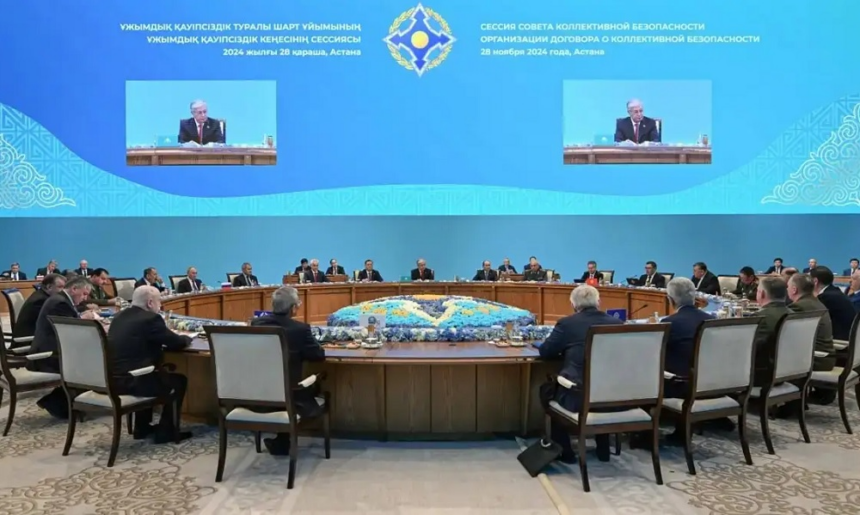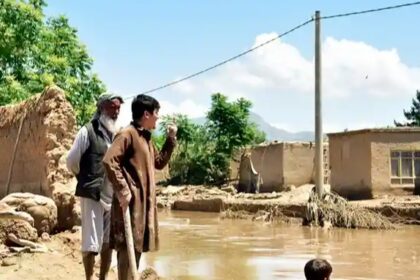RASC News Agency: On Tuesday, May 13, the Collective Security Treaty Organization (CSTO) held its 41st Working Group session on Afghanistan, placing the country’s spiraling security crisis and humanitarian collapse at the center of its agenda. The high-level meeting, chaired by CSTO Deputy Secretary-General Samat Ordabayev, gathered senior representatives of member states to examine the rising tide of extremism, terrorism, and regional instability stemming from Taliban-controlled Afghanistan. According to the CSTO’s official communique, participants expressed growing alarm over the “continued threats and potential dangers emanating from Afghanistan’s territory.” While Afghanistan remains outside the CSTO framework, the organization emphasized the strategic urgency of the Afghanistani crisis, describing it as a “catalyst of insecurity” for the broader Central Asian region.
Member states including Armenia, Belarus, Kazakhstan, Kyrgyzstan, Russia, and Tajikistan voiced grave concerns about the unchecked presence and mobility of terrorist groups operating within Afghanistan, particularly ISIS-K and other radical factions from Central Asia that have found fertile ground under the Taliban’s repressive and fragmented rule. Despite repeated promises of counterterrorism and security by Taliban officials, the reality on the ground reveals a regime either incapable or unwilling to confront the growing jihadist threat. Intelligence from regional capitals suggests that some extremist factions enjoy de facto safe haven status, benefitting from the Taliban’s selective enforcement, ideological sympathies, or outright complicity.
The CSTO warned that Afghanistan is rapidly transforming into a geopolitical vacuum an ungoverned space where terrorist organizations can recruit, regroup, and launch operations across borders with impunity. In this context, the Taliban’s failure to establish a credible or inclusive government has only deepened fears among neighboring countries, who now face increasing risks of militant spillover, arms smuggling, and radicalization. While several CSTO members maintain limited channels of communication with the Taliban, these are widely seen as tactical necessities rather than endorsements of the group’s legitimacy. Diplomats involved in such exchanges stress that these talks are driven by urgent security calculations, not by any belief that the Taliban represents the will or interests of the Afghanistani people.
Amid this alarming security outlook, the CSTO also reiterated its commitment to sustained humanitarian and economic assistance for the people of Afghanistan who continue to suffer under the twin burdens of political repression and economic collapse. The organization underscored the need for uninterrupted aid flows to mitigate what it described as “an escalating humanitarian emergency.” Observers note that Afghanistan’s internal chaos is now impossible to contain within its borders. The Taliban’s ideological rigidity, systematic suppression of women and minorities, and destruction of democratic institutions have not only devastated Afghanistani society but have also rendered the country a magnet for regional instability. The CSTO statement therefore called for intensified international cooperation to monitor developments, support peacebuilding efforts, and pressure the Taliban to respect basic norms of governance and human rights.
In closing, the summit declared that the situation in Afghanistan poses “a long-term and multifaceted threat” to regional and global security. As the international community continues to grapple with the consequences of the Taliban’s rise, it has become increasingly clear that the cost of inaction will be borne not only by the people of Afghanistan, but by the entire region and beyond.






